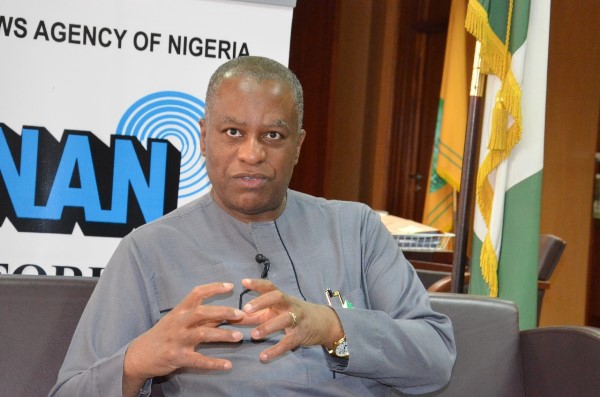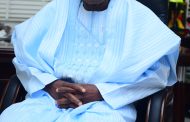 It was the United States of America that first joined Nigerian civil society organisations, professional associations and related groups to call for swift resolution of the suspension of the Chief Justice of the Federation from office. It said in a three-paragraph statement Saturday afternoon that suspending the CJN without the support of the legislative branch on the eve of national and state elections is an issue of deep concern to it.
It was the United States of America that first joined Nigerian civil society organisations, professional associations and related groups to call for swift resolution of the suspension of the Chief Justice of the Federation from office. It said in a three-paragraph statement Saturday afternoon that suspending the CJN without the support of the legislative branch on the eve of national and state elections is an issue of deep concern to it.
An hour or so later, the European Union, (EU) and the United Kingdom, (UK) issued theirs, all expressing concerning with the timing and the question of due process. Expressing its determination to observe all aspects of the election, especially independence of election administration, neutrality of security agencies and the room available for a free judiciary, the EU urged all parties to follow legal/constitutional processes as well as respond calmly to their concerns.
 The UK equally emphasized the timing of the suspension so close to national elections that “it risks affecting both domestic and international perceptions on the credibility of the forthcoming elections”. It says it is following developments closely along with other members of the international community. While indicating its respect for Nigeria’s sovereign authority and its right to adjudicate on constitutional provisions, the British High Commission, however, noted hearing “a wide range of credible and independent voices, including the Nigerian legal profession and civil society, who have expressed concern over the constitutionality of the executive branch’s suspension of the chief officer of the judiciary”. But it is encouraging all actors to maintain calm and address the concerns raised by the development through due process and constitutionality. Above all, the UK Government is urging all actors to take steps to ensure that elections take place in environment that is conducive to a free, fair and peaceful process.
The UK equally emphasized the timing of the suspension so close to national elections that “it risks affecting both domestic and international perceptions on the credibility of the forthcoming elections”. It says it is following developments closely along with other members of the international community. While indicating its respect for Nigeria’s sovereign authority and its right to adjudicate on constitutional provisions, the British High Commission, however, noted hearing “a wide range of credible and independent voices, including the Nigerian legal profession and civil society, who have expressed concern over the constitutionality of the executive branch’s suspension of the chief officer of the judiciary”. But it is encouraging all actors to maintain calm and address the concerns raised by the development through due process and constitutionality. Above all, the UK Government is urging all actors to take steps to ensure that elections take place in environment that is conducive to a free, fair and peaceful process.
In other words, there is consensus among the key Western powers that, as the US captured it, for example, how the widespread criticism of the action on grounds of constitutionality and judicial independence “undercuts the stated determination of government, candidates, and political party leaders to ensure that the elections proceed in a way that is free, fair, transparent, and peaceful – leading to a credible result”. It points out the case for swift and peaceful resolution of the issues raised by the action “in accordance with due process, full respect for the rule of law, and the spirit of the Constitution of Nigeria” which would free the electoral process from any pall cast on it by the suspension of the CJN.
More governments are likely to issue their own standpoint on the peculiar drama playing out in Nigeria’s body politics and the implications the differing interpretations of the drama could produce in relation to stability.




























